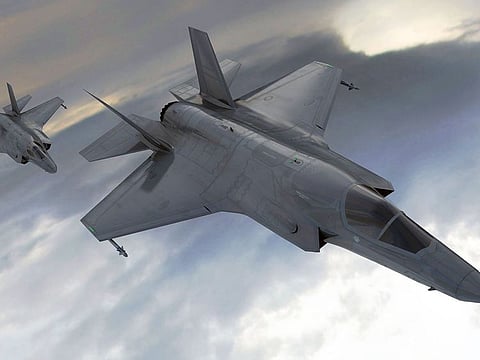Biden signs $770 billion defense bill
Lawmakers increased spending in almost every part of the military

Washington: President Joe Biden signed a nearly $770 billion defence bill on Monday, $24 billion more than he had requested, a setback for antiwar liberals whose efforts to expand social spending have been blocked by Democratic moderates in the name of fiscal responsibility.
Lawmakers increased spending in almost every part of the military, including new funding to counter China’s military expansion, initiatives to bolster the defence of Ukraine and billions in cash for the procurement of advanced aircraft, ships and high-tech hardware.
The bill, the National Defence Authorisation Act, also contains a 2.7 per cent pay increase for most service members, a broadly popular provision supported by even the dozens of progressives who opposed the legislation’s passage in the House.
The measure, which covers the fiscal year that started October 1, also changes the way the military handles many internal criminal investigations, particularly those involving sexual assault and sexual harassment.
Those provisions “are the most transformational thing that has been done by the House Armed Services Committee in my 25 years of service,” said Rep. Adam Smith, Democrat-Washigton, the chairman of the committee. “There’s a lot to be proud of in this bill.”
The measure passed the House and the Senate this month with wide bipartisan support, despite the liberal House members and the 11 senators who voted against it.
But Republicans did not get everything they wanted. Democrats blocked an effort by House conservatives that would have declared that Congress had “lost confidence” in Biden over his handling of the withdrawal from Afghanistan.
Smith and others highlighted the criminal justice reforms as among the most significant in recent history, and predicted that they would do much to change an entrenched culture of cover-ups and favouritism in the military’s justice system.



